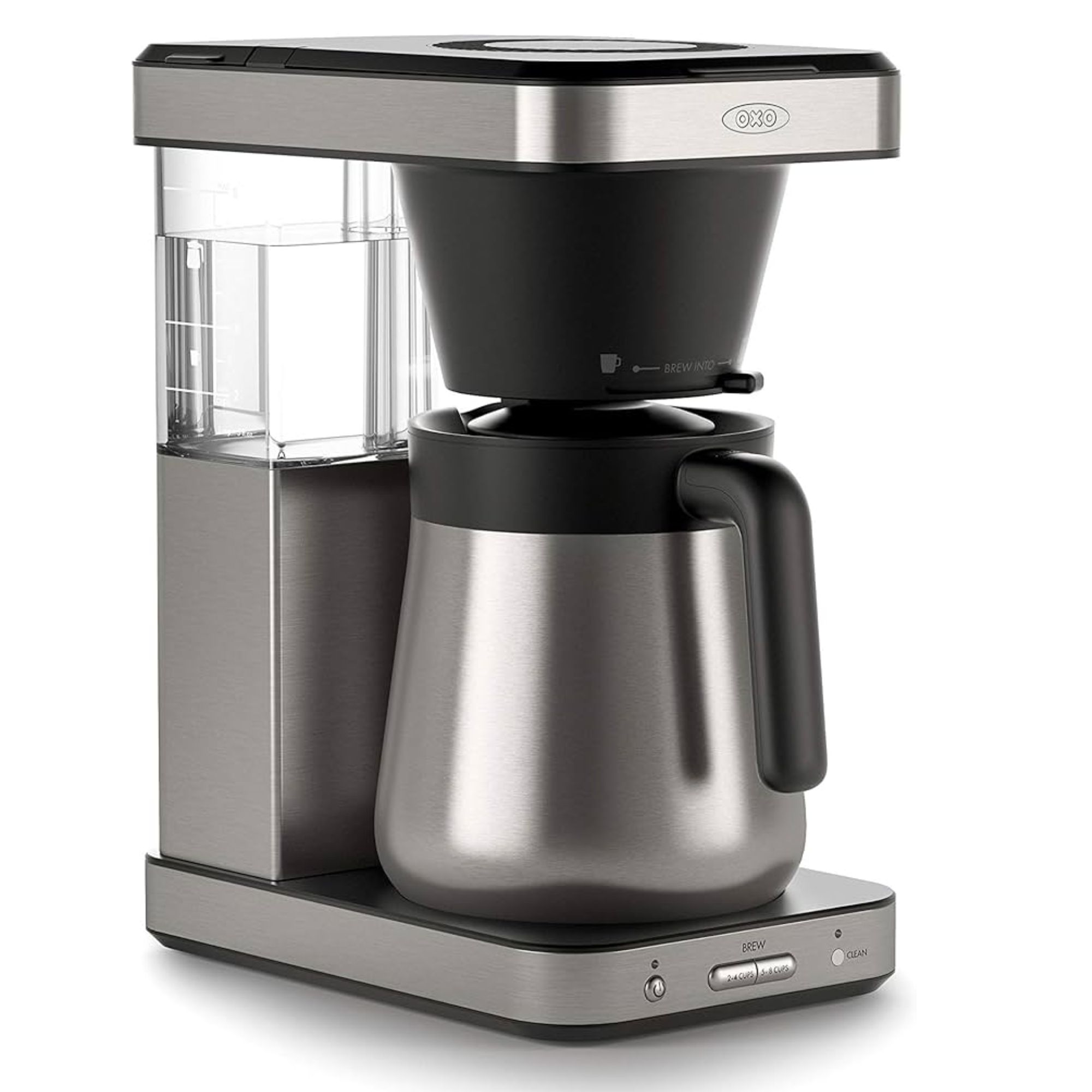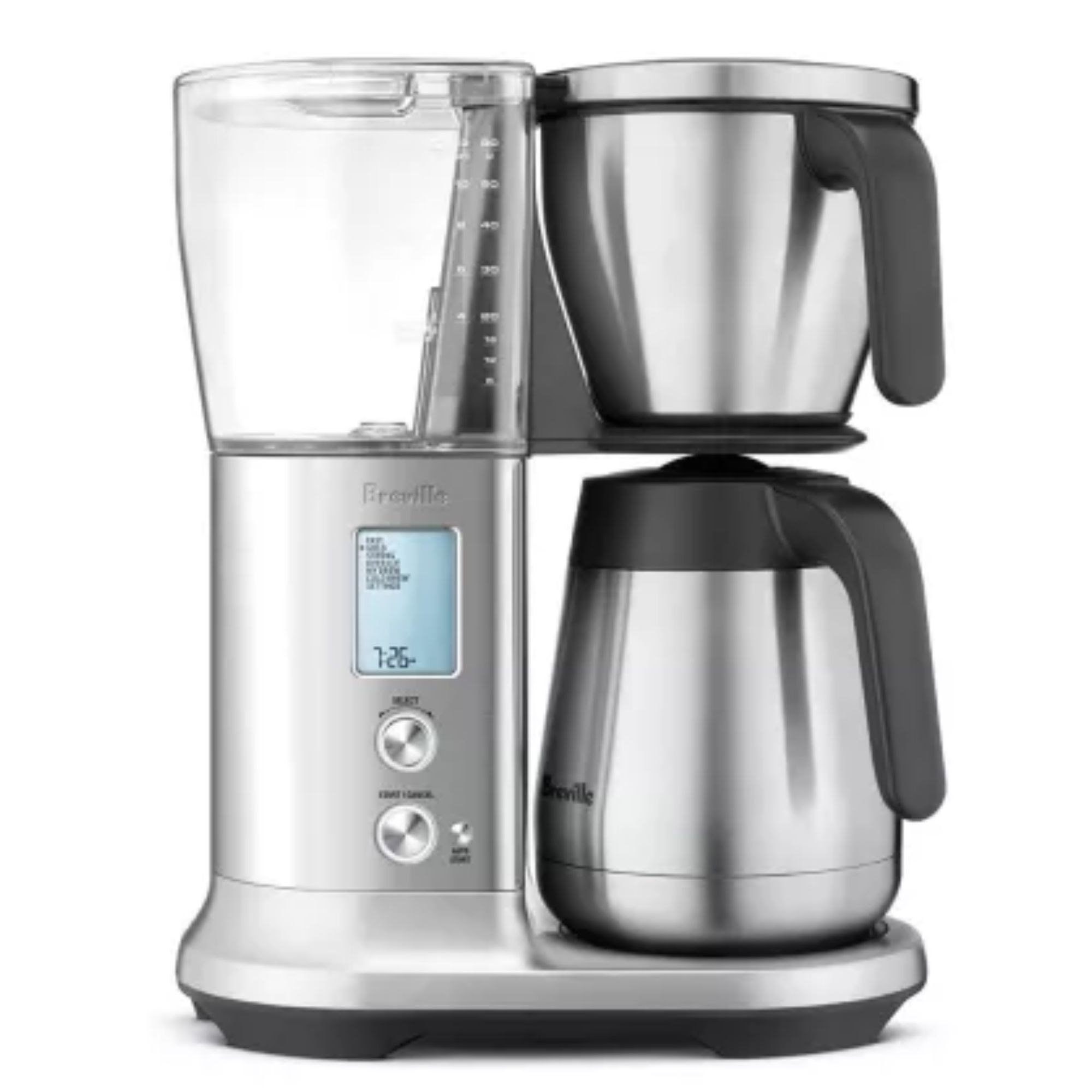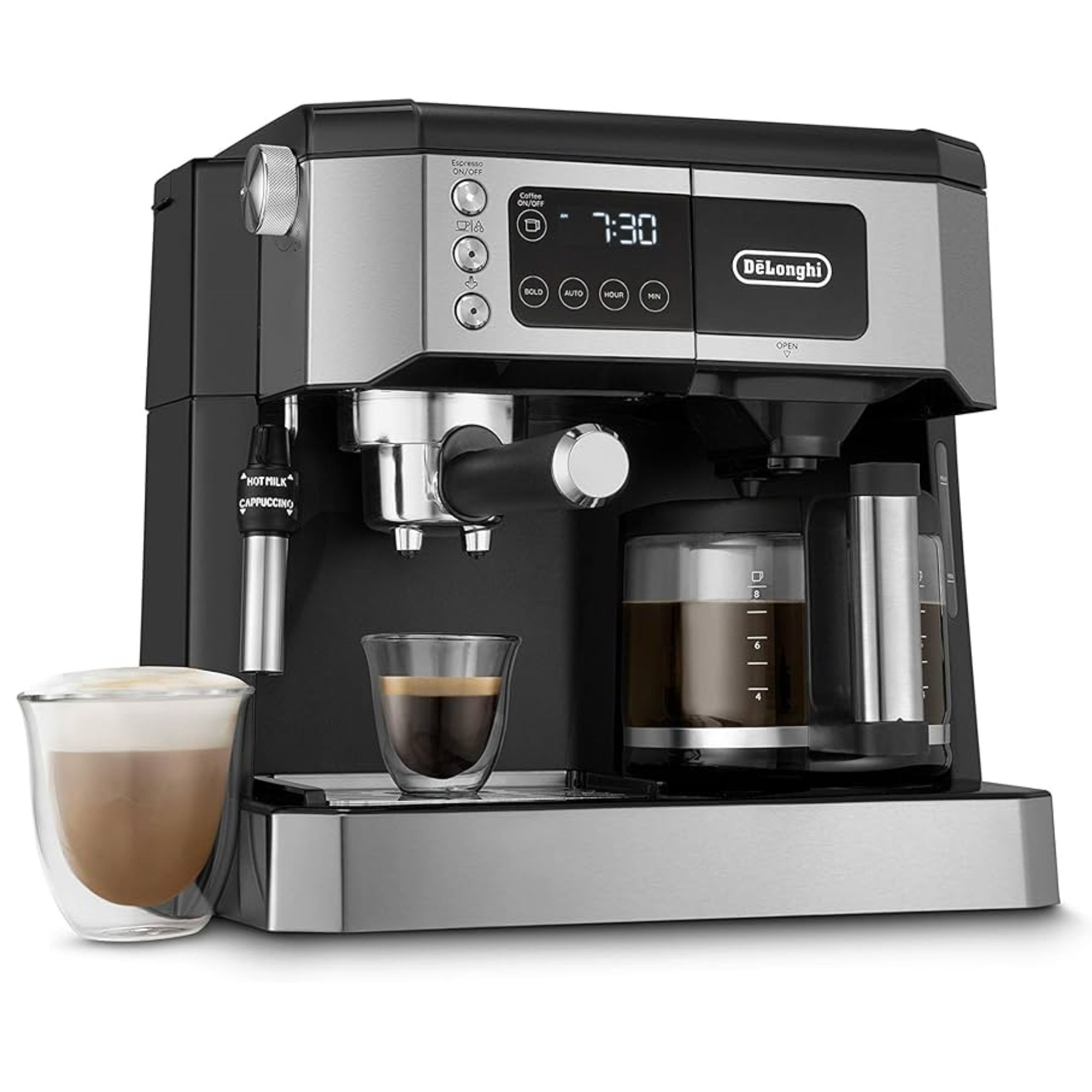How to make coffee at home – become your own barista
Forget café coffee, you can make it yourself

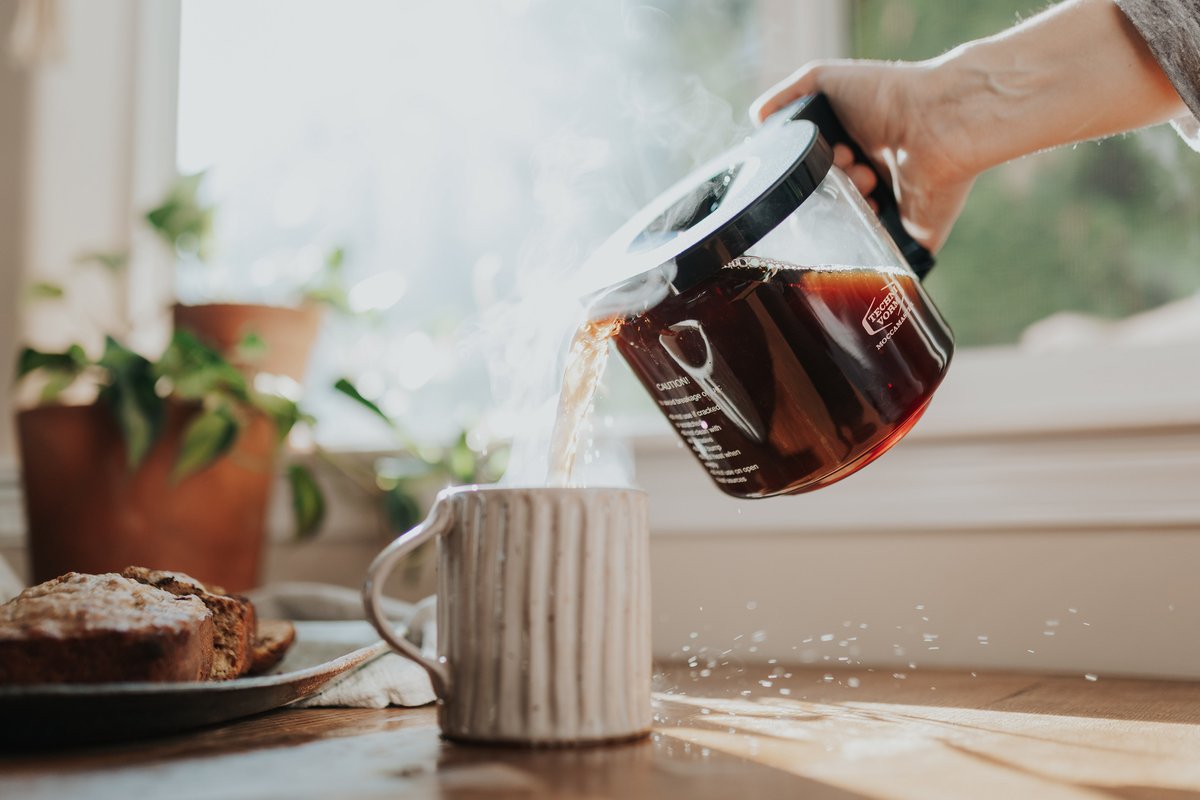
Design expertise in your inbox – from inspiring decorating ideas and beautiful celebrity homes to practical gardening advice and shopping round-ups.
You are now subscribed
Your newsletter sign-up was successful
Want to add more newsletters?

Twice a week
Homes&Gardens
The ultimate interior design resource from the world's leading experts - discover inspiring decorating ideas, color scheming know-how, garden inspiration and shopping expertise.

Once a week
In The Loop from Next In Design
Members of the Next in Design Circle will receive In the Loop, our weekly email filled with trade news, names to know and spotlight moments. Together we’re building a brighter design future.

Twice a week
Cucina
Whether you’re passionate about hosting exquisite dinners, experimenting with culinary trends, or perfecting your kitchen's design with timeless elegance and innovative functionality, this newsletter is here to inspire
For most of us, the best cups of coffee we drink are made by a barista, who spent years learning how to make coffee on flashy, commercial coffee makers. Having been one myself, I can tell you that really good coffee doesn't need to be made by a professional. You can make delicious coffee, in your coffee maker, at home.
Before we get into the nitty-gritty of how to make coffee, it's important to make sure that you have a few things straight. It's a lot easier to make an enjoyable cup of coffee if you've invested in a good coffee maker that suits the kinds of coffee you like. Cafés will use expensive espresso machines, but for plenty of us, a good drip coffee maker will be more than enough.
Pair your coffee maker with the right coffee beans, a good grinder, and some expert advice from baristas (like me) and you're on your way to making a perfect coffee at home. I think it's time to pop the kettle on.
How to make coffee at home
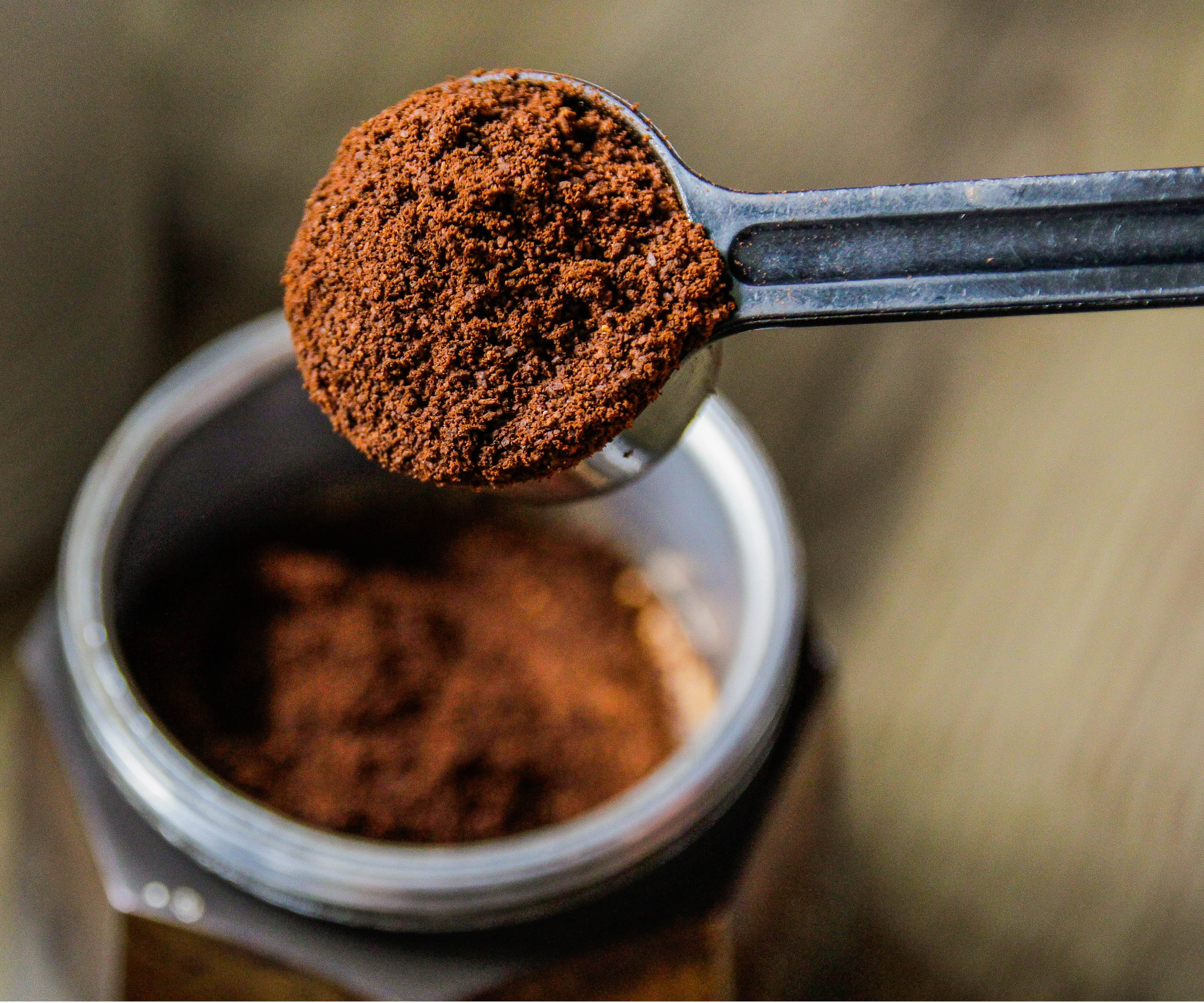
The most important place to start is with the type of brewing method that you'll be using. Different coffee makers follow different processes for extracting coffee flavors from your grounds, so check that you're using a coffee maker that suits the kind of coffee you'll enjoy. There's a quick list below to help you choose, but I've got even more information for how to choose the right coffee maker for you in my guide to the best coffee makers.
- If you like your coffee exactly as you have it in the café, you'll want to be using an espresso machine, moka pot, or an AeroPress. These make strong, punchy coffees because they use the most extreme temperatures and pressures to extract flavors from your grounds.
- Similarly, if you like frothy, milky coffee, you'll need an espresso machine. Some will come with automatic controls to froth and add milk for you and others will come with a steam wand, so you can do it yourself. If that all sounds a bit too involved, investing in a single-serve machine and a separate milk frother will do the job
- If you like classic, black coffee that's full of flavor, you've got a lot of choices. French press will give you more acidic flavors and pour-over coffee makers will make lighter, more delicate coffee. Drip coffee makers and espresso machines will also be able to give you delicious black coffee.
- If you want big batches of light coffee, you can't do better than a drip coffee maker. These are low maintenance and easy to use. In fact, they're the nation's most popular way to make coffee at home.
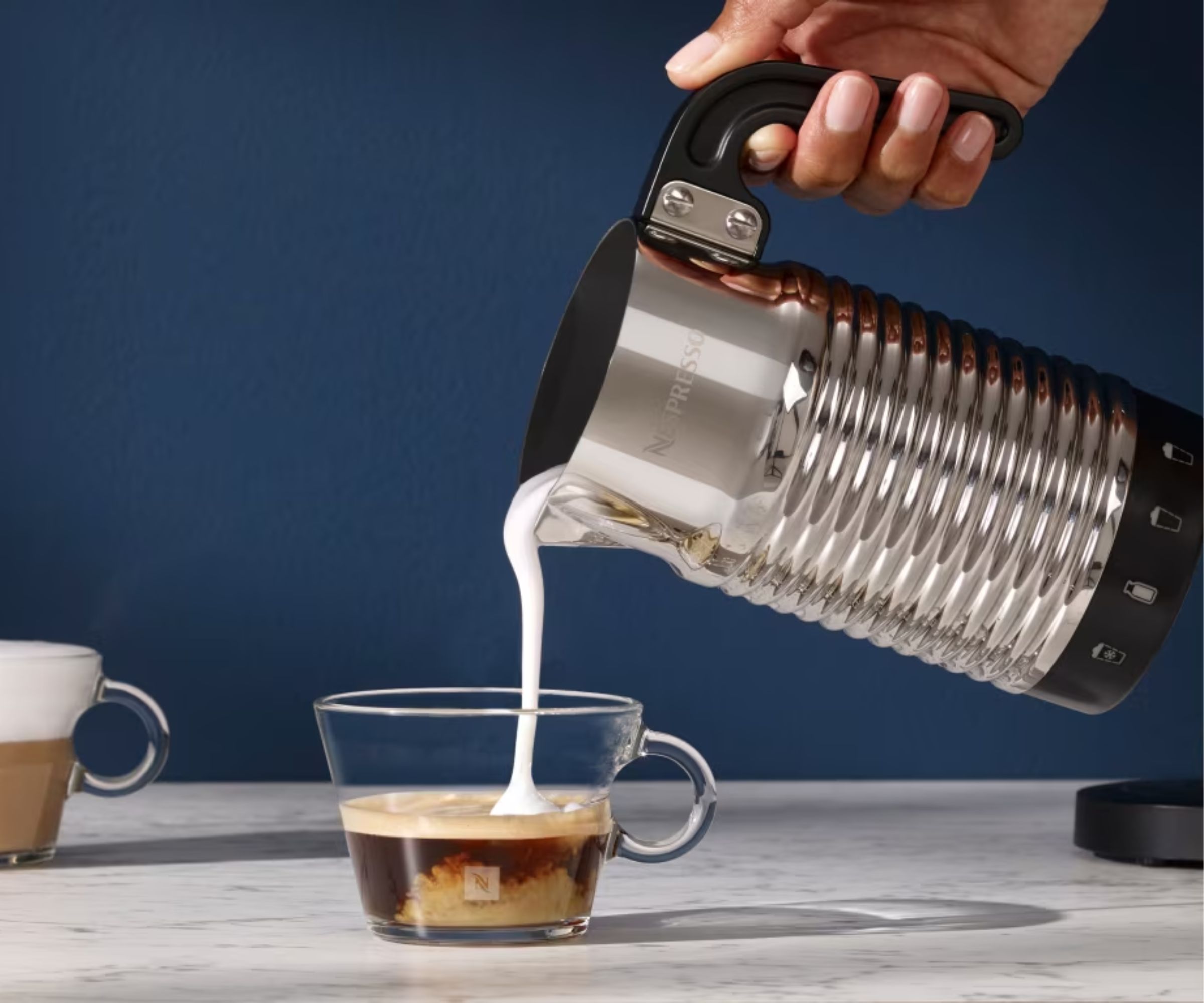
You also need to make sure that you're using a good grinder and the kinds of coffee beans that suit your palette. I've explained how to choose coffee beans in lots more detail over here, but think about what flavors you like and try to find beans that will suit your tastes. I can't overstate how important your coffee beans are. James Hoffmann, possibly the most famous barista in the world, said 'You can give me bad anything, but don't give me bad coffee beans. I can make a reasonable coffee with a crude coffee maker and a dodgy grinder, but if the beans aren't top-quality, the coffee won't be either.'
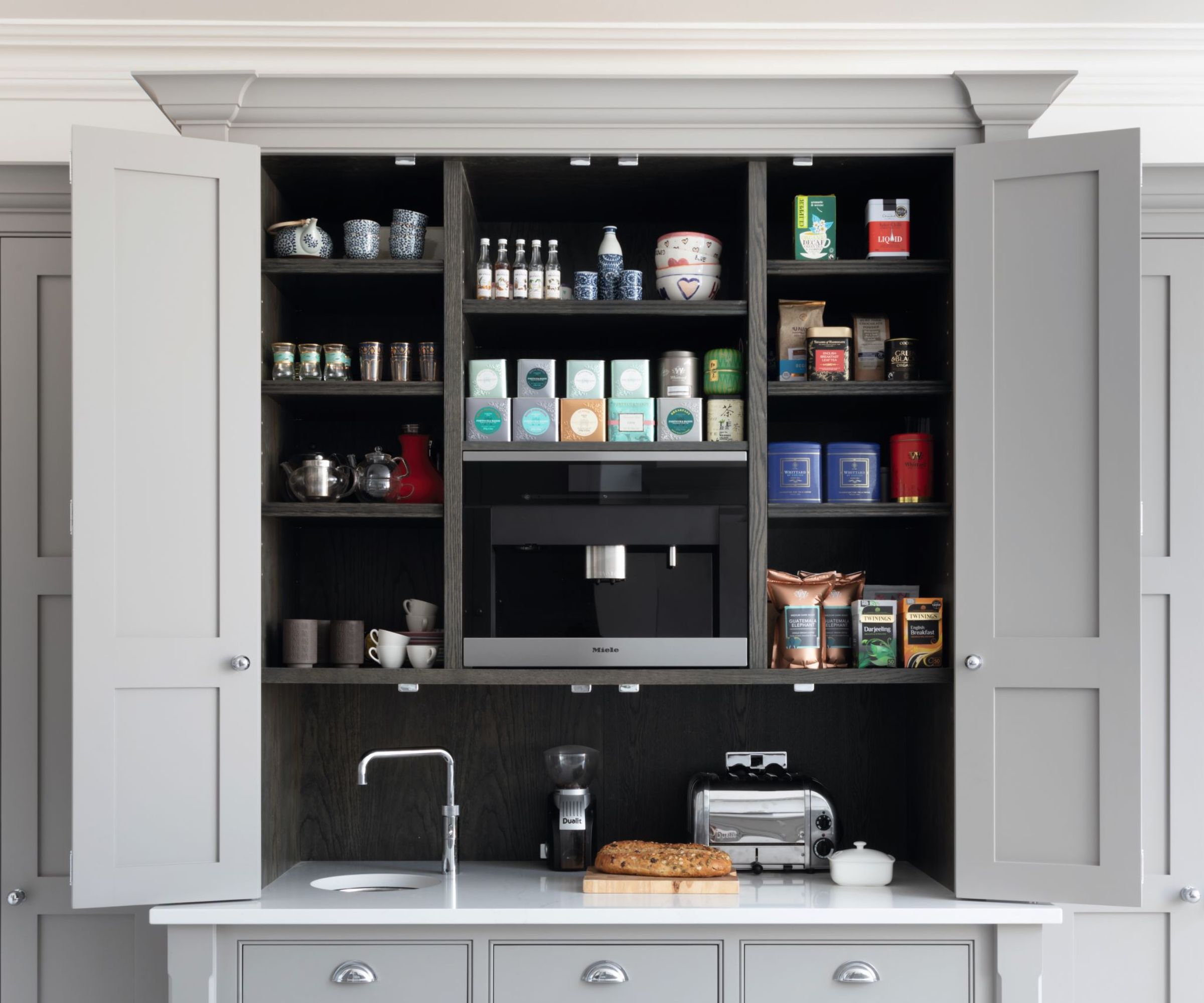
Once you've got all of your coffee essentials, we can begin to think about how to make coffee at home. Each coffee maker follows a different method, so I'll talk you through how to make coffee with a drip coffee maker, an espresso machine, and a French press since these are the three most popular methods.
How to make coffee with a drip coffee maker
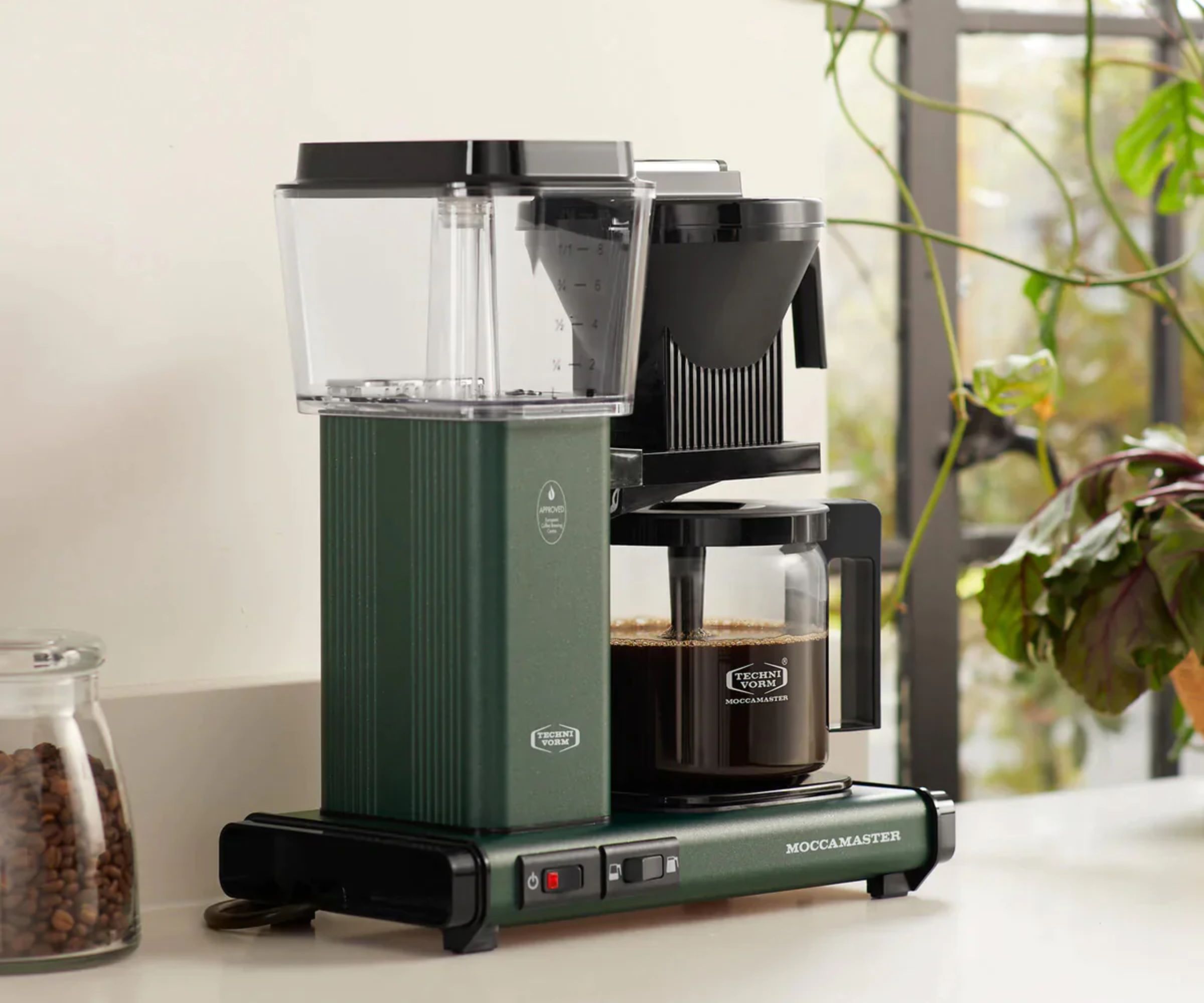
Filter coffee is the nation's favorite way home brewing method. I spoke with James Gray, founder of Barista & Co who said, 'Drip is one of the cheapest ways to make excellent complex coffee. The challenge is ensuring that you get the same result every time. The best way to do this is to make sure that you invest in the best coffee grinder or get your coffee ground at your local coffee roaster.
Design expertise in your inbox – from inspiring decorating ideas and beautiful celebrity homes to practical gardening advice and shopping round-ups.
'The filter ground coffee that is bought in the supermarket is usually too coarse which means you are likely to get a coffee that is weak and lacking flavor. If you have some scales in the kitchen it is also worth getting them out when you are brewing your coffee, a general rule of thumb is half an ounce of coffee to 11 ounces of water. If you are using a kitchen kettle rather than a specialist goose neck kettle then you want to use the water just off the boil.
'To get going, pour a small amount of water through the paper filter to ensure you are removing any nasties from the paper, just make sure you pour away the water that filters through.
'Next pour in your filter ground coffee, this should be a finer grind than French press but not as fine as espresso. I would then recommend gently tapping the brewer on the cup or jug below to flatten the bed of the coffee, this is important as you want the water to travel through all the coffee evenly.
'Gently pour water in until it just covers the coffee and leave it for 30 seconds to bloom, you should see the coffee bubble as the gas escapes. You can also give it another tap on the cup to ensure the coffee bed is level.'
'After this, slowly pour in your remaining water and leave it to filter through, if the grind is right it should take anywhere between two minutes and four minutes to filter through fully. If it is much quicker than this, your grind size is too coarse. If that is the case you’re better off keeping the coffee for another brewing method such as a French press.'
If you like the sound of this, but think you need an upgrade to your drip coffee maker, here are my three favorites (there are more options in our guide to the best drip coffee makers on the maker):
How to make coffee using an espresso machine
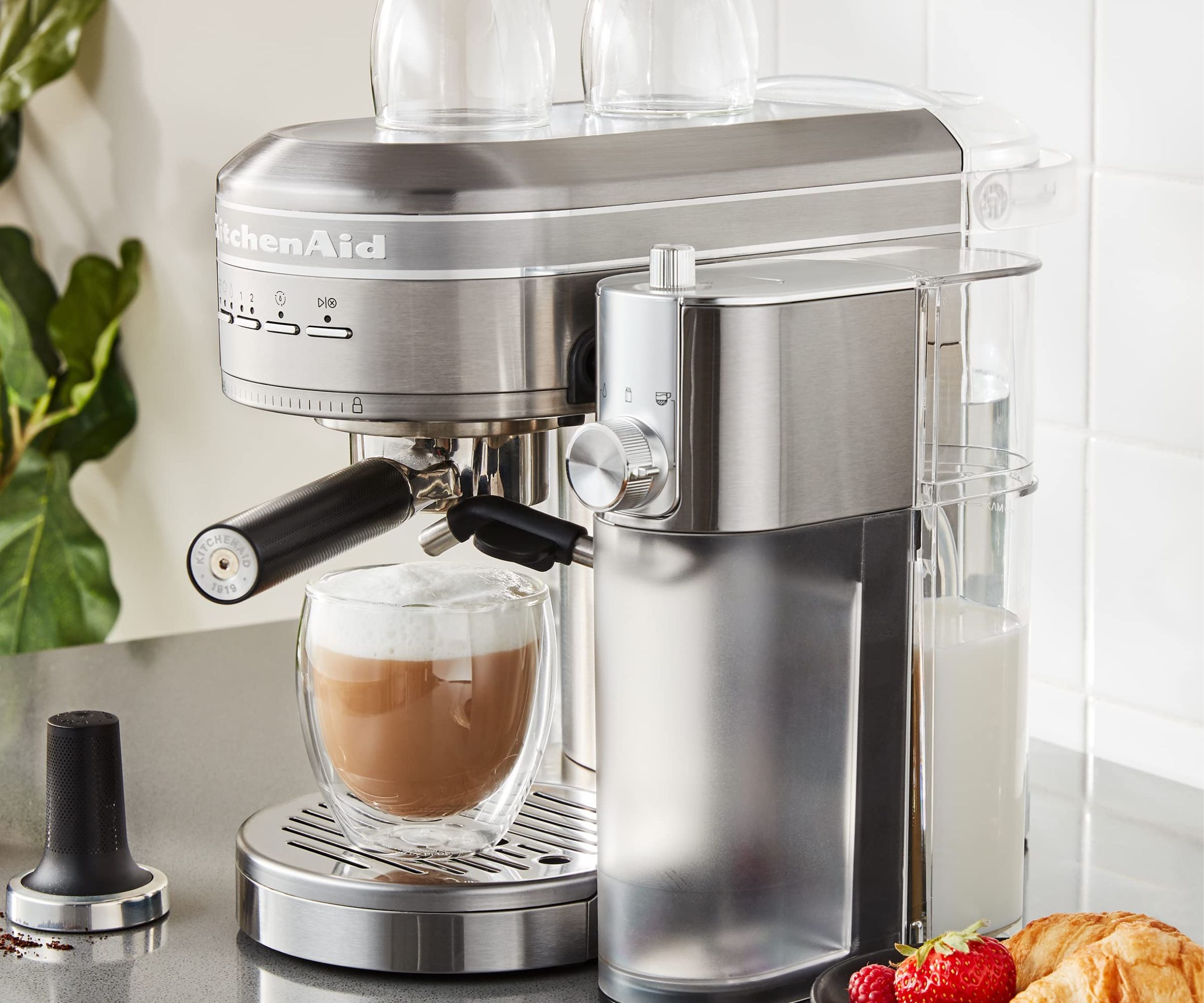
Sometimes, there's nothing nicer than a velvety latte or a compact shot of coffee. So how do you make coffee like the professionals?
If you're wondering how to make an espresso, I have a dedicated guide that goes into the details. In, short, if you have an espresso machine, then you'll need half an ounce of ultra-fine coffee grounds, which need to go into your portafilter. Push these down using a tamper, being firm and consistent. Side note: if you don't own a tamper, this stainless steel tamper from Walmart does an excellent job. Once you've done that, you lock your portafilter into place and press whichever buttons your machine directs you to. It's simple.
Once you've got your espresso, you can make an Americano (just add water) and a latte (add steamed milk). Steaming milk is a whole other process that takes practice too. Essentially, steaming milk can be broken down into two stages. You need to aerate and then stretch the milk. Steve Spring, a professional coffee roaster, says that this is when you need to 'turn the steam to full power and keep the tip close to the milk surface to introduce air. You should hear a paper tearing sound, which some people describe as kissing or ticking. Whatever you call it, this indicates that air is being incorporated to create all-important foam'. Then, you can bury the nozzle into the milk and stop heating when it reaches 150 degrees Fahrenheit (this is normally when the milk carafe is too hot to hold the palm of your hand on.
If you can see yourself as an espresso machine owner, here are our three favorites. There are more options in our buying guide for the best espresso machines too.
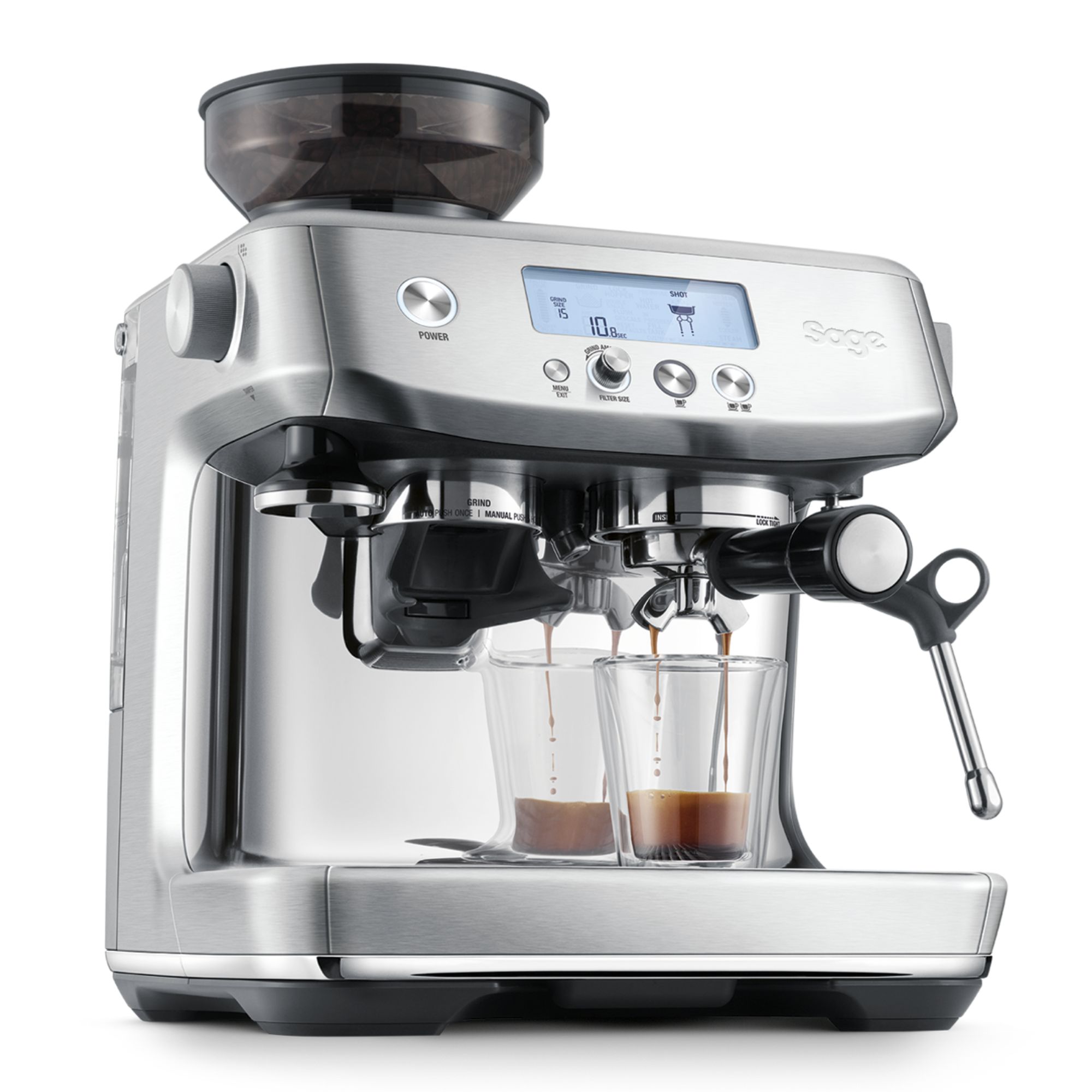
If you want to become your home's dedicated barista, this is the one for you. It's capable of making your coffee exactly how you like it: to the gram, degree, and ml.
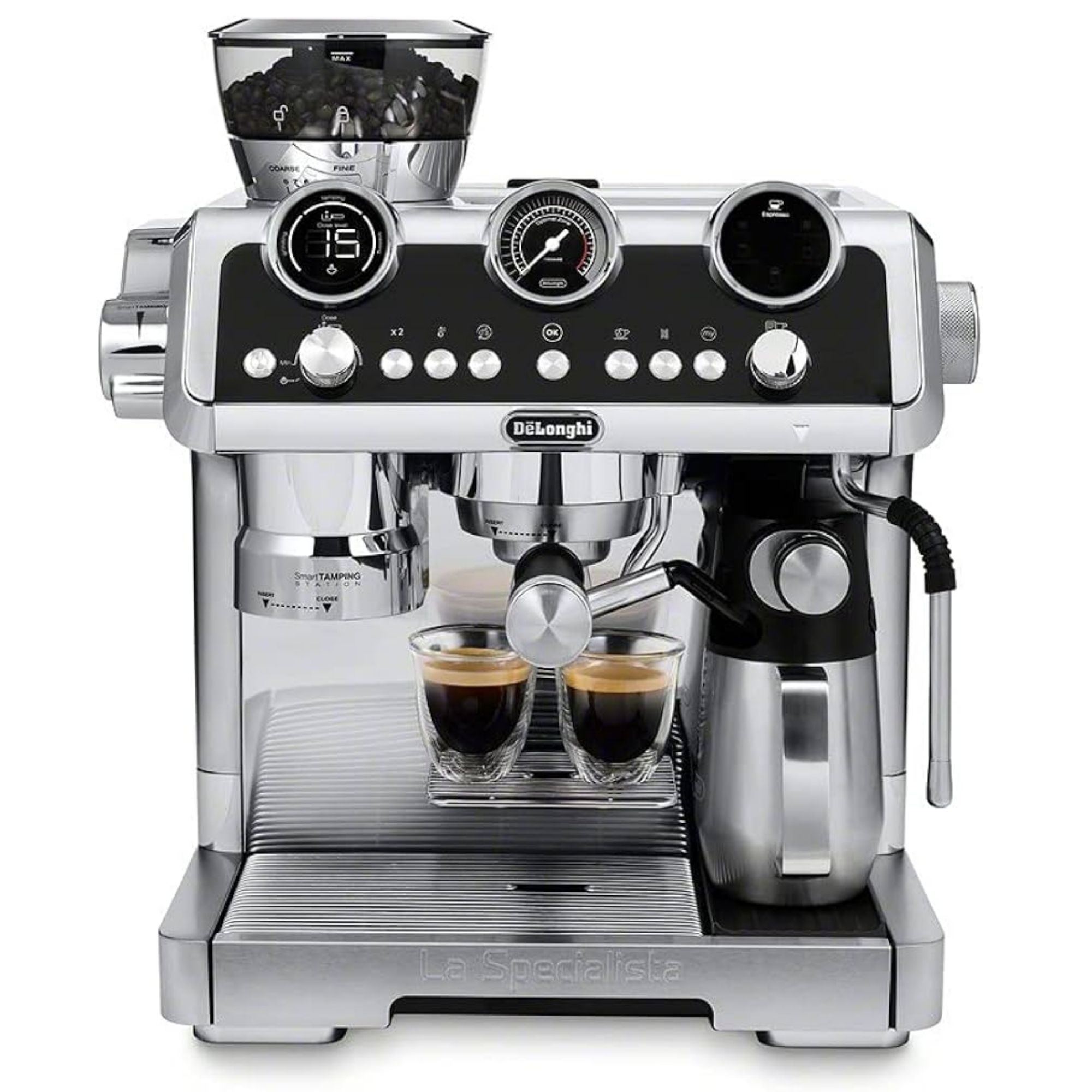
I've never found an espresso machine like this ever. It can make cold brew, has auto-tamping, and precision controls. Everyone from beginners to experts will love it.
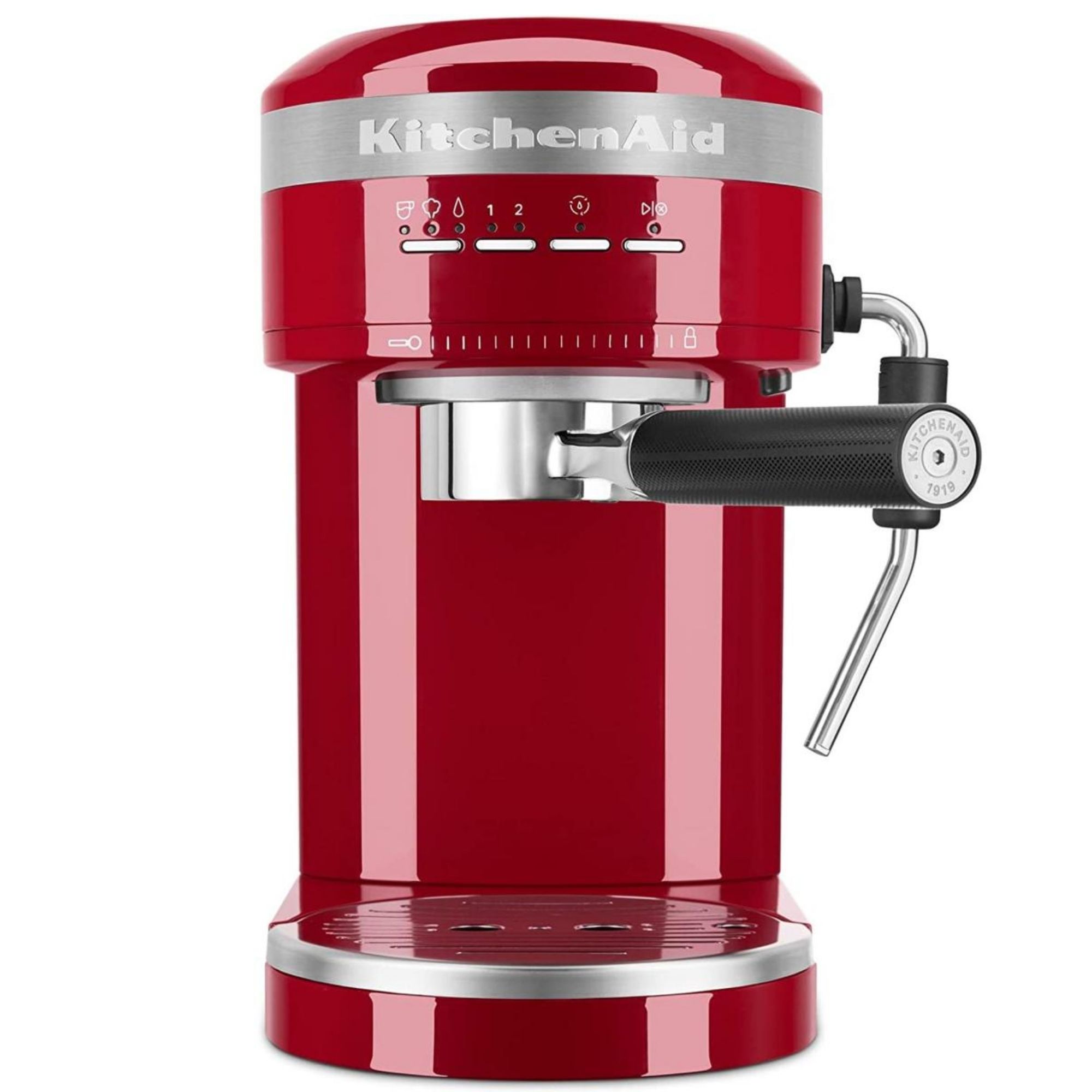
If you want a super simple espresso machine, this is the best model out there. It's competent, well-built, and available in a range of colorways.
How to make a latte if you don't have an espresso machine
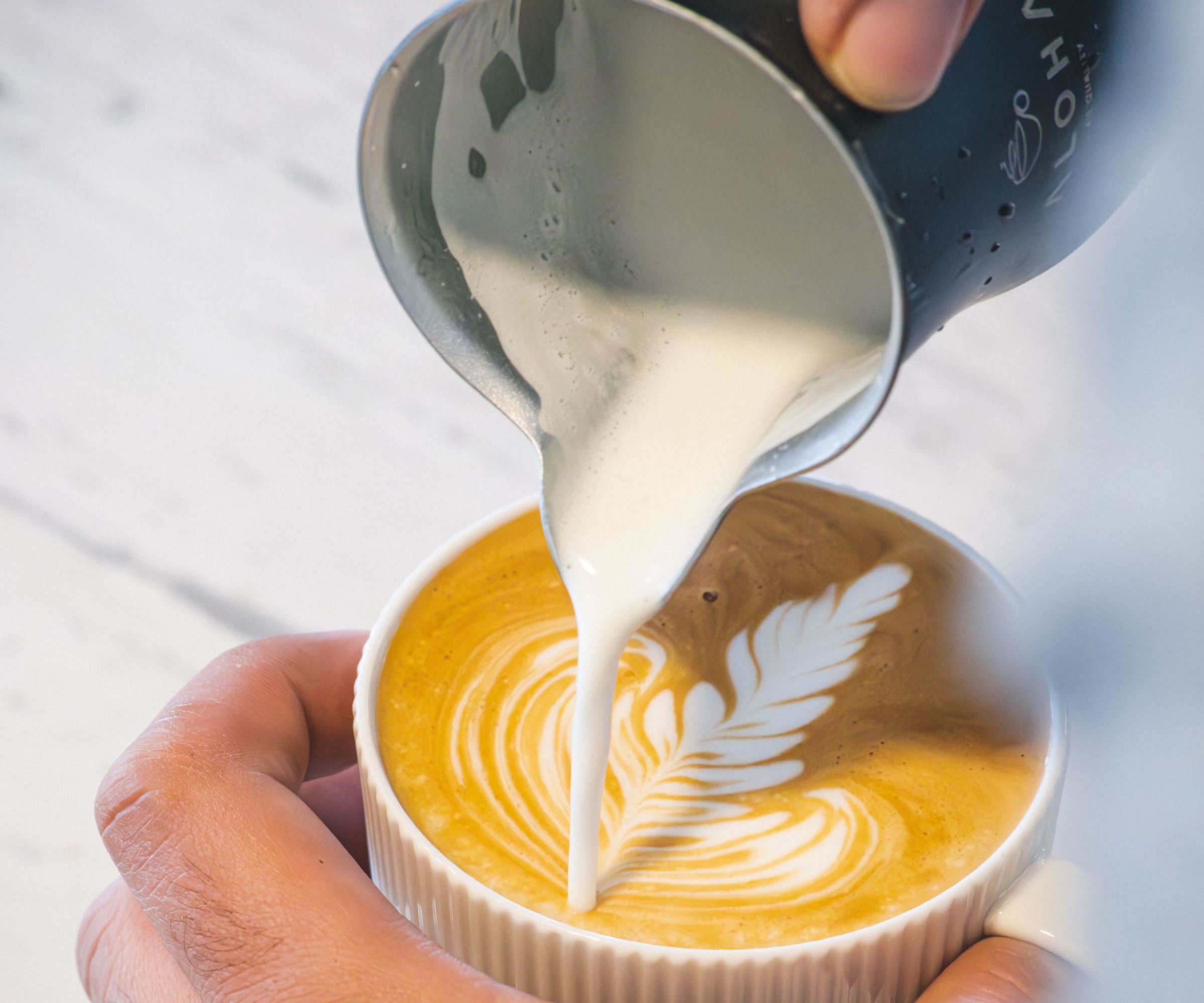
If you like the milky drinks that you get from your local barista and you don't have an espresso machine, don't worry, there are other ways to make a latte at home.
James Gray says: 'Technically, to make a latte you should have an espresso as the coffee base so you will have to accept that, without this, you won’t get a latte that you’re used to from the coffee shop.
'However, you can still make great milky coffee with a delicious milk foam. If you don’t have the budget for an espresso machine you can try a Bialetti Moka stovetop coffee maker, a method of brewing that is the go-to in Italian households and has been for 90 years. You can pick them up from around $30 and although you won’t get the crema you get with an espresso machine, you will get a strong shot that is a great base for your latte-style coffee.
'If you want to use the brewer you already have then you could increase the amount of coffee you use and, if you’re brewing with a French press push the brew time to eight minutes. A latte is traditionally around 2/3 steamed milk so you should look for your coffee shot to be a 1/3 or less of the drink.'
I have lots more to say on how to make a latte at home in a dedicated article over here. To get frothy milk without a steam wand, you'll need a milk frother. I've cured a list of the best milk frothers on the market, but here are my three favorites:
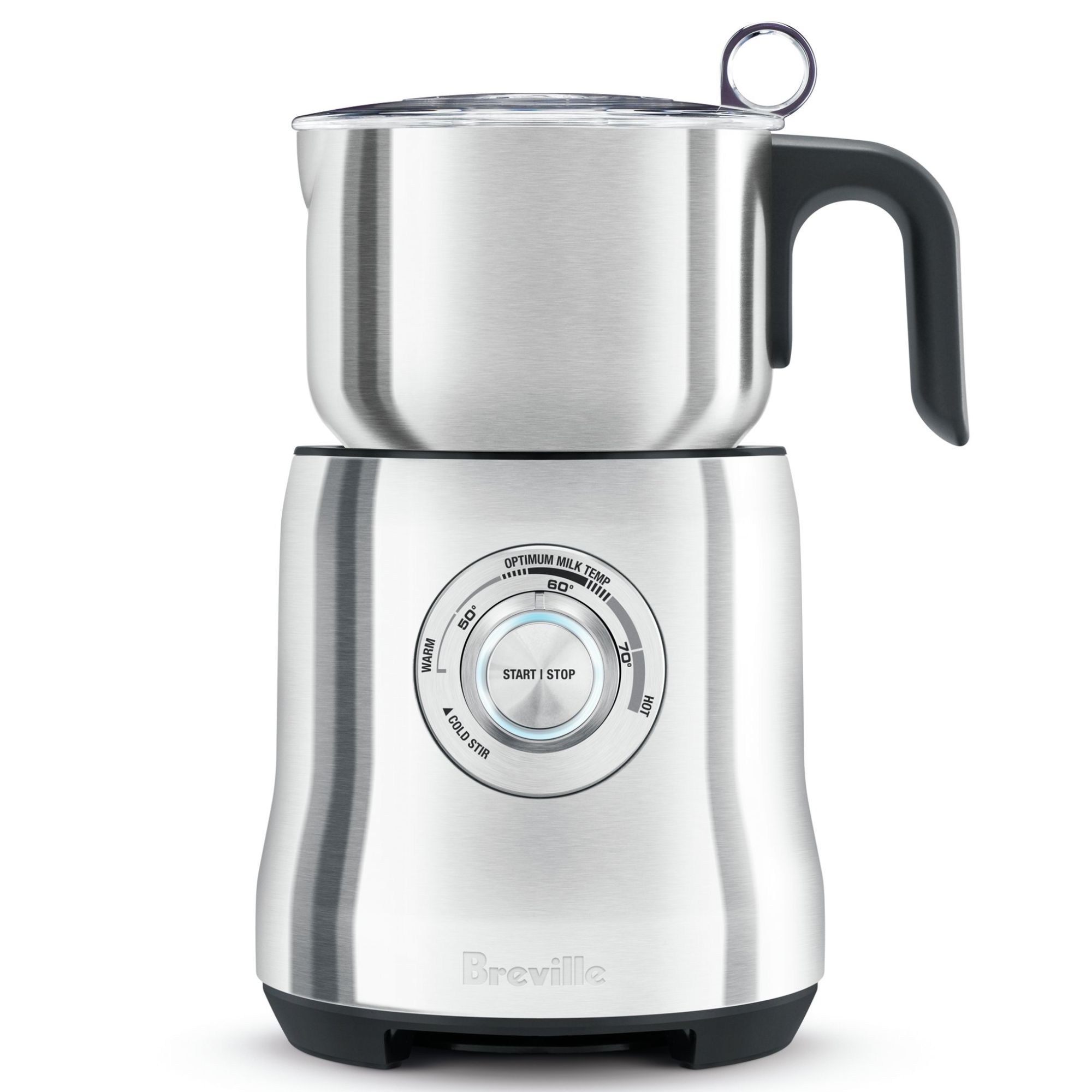
I love Breville's milk carafe, because it has a huge capacity, so you can make enough milk for a few lattes in one, easy, speedy machine. It looks great too.
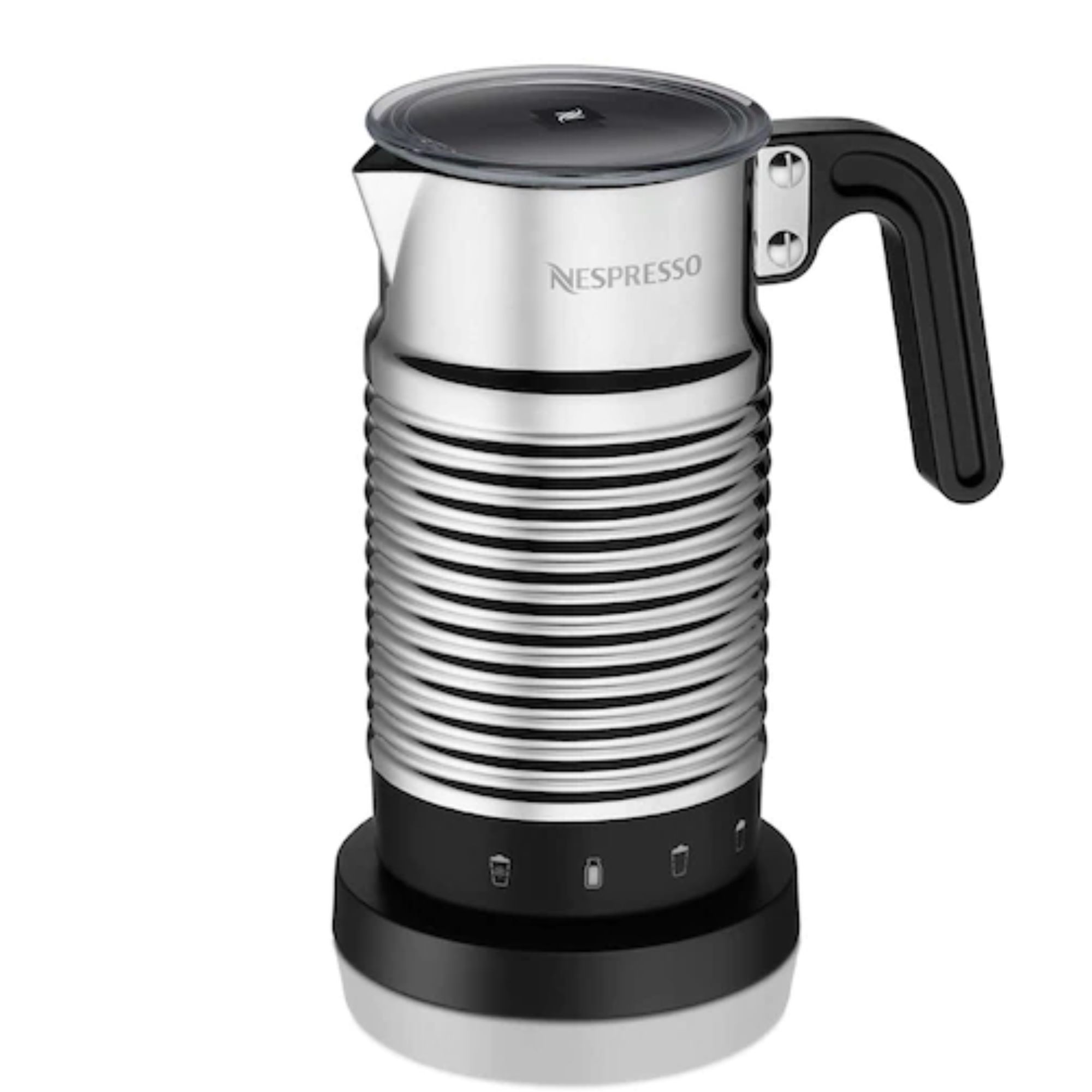
If you want quick milk, hot or cold, the Aeroccino is unrivaled. You can buy it in a bundle with Nespresso's coffee makers or separately to enjoy it with another coffee maker.

I use this illy at home, because it's petite and effective. You can make hot foam, cold foam, and even hot chocolates too. It's perfect for small spaces.
How to make a coffee with a French press
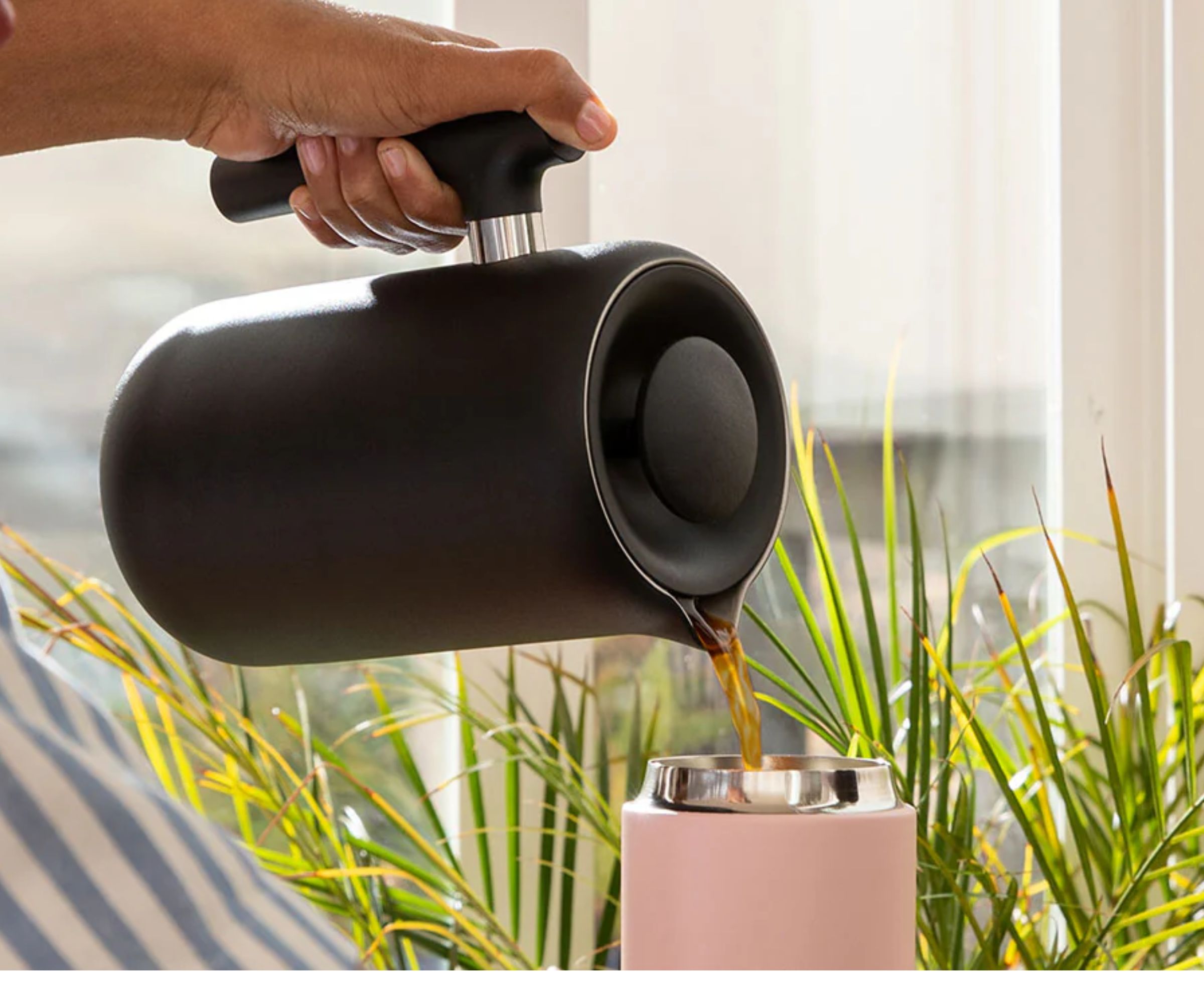
A French press is one of the easiest and classic ways to make great-tasting coffee at home. We've put together a step-by-step guide on how to use a French press so you can make the most of yours for every single coffee break.
If you want a quick guide, you'll need to use coarsely ground coffee. Place 14-16 grams at the bottom of your carafe (if you want to make two cups) and then pour 12 oz of hot water over the top of it. The general guidance from baristas is to follow a 1:15 part coffee-to-water ratio. Let your coffee steep for six to eight minutes and then plunge. It's really that easy.
If you need some inspiration for which are the best French presses on the market, here are my three favorites:
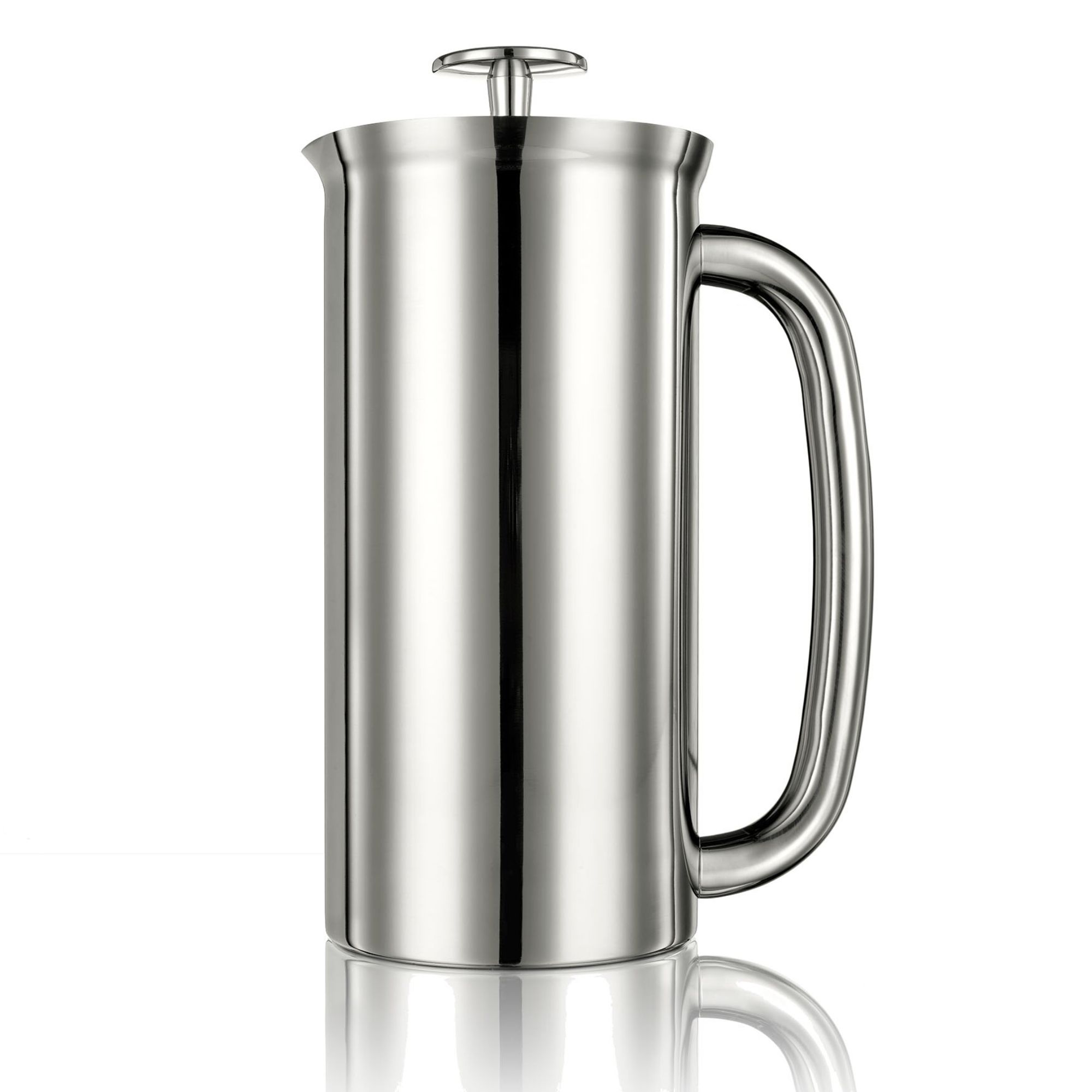
The Espro is one of the most expensive French presses on the market, but it's worth it. The double-walled carafe keeps your coffee hot. Inside, the rubber seal and double filters make a super smooth cup of coffee.
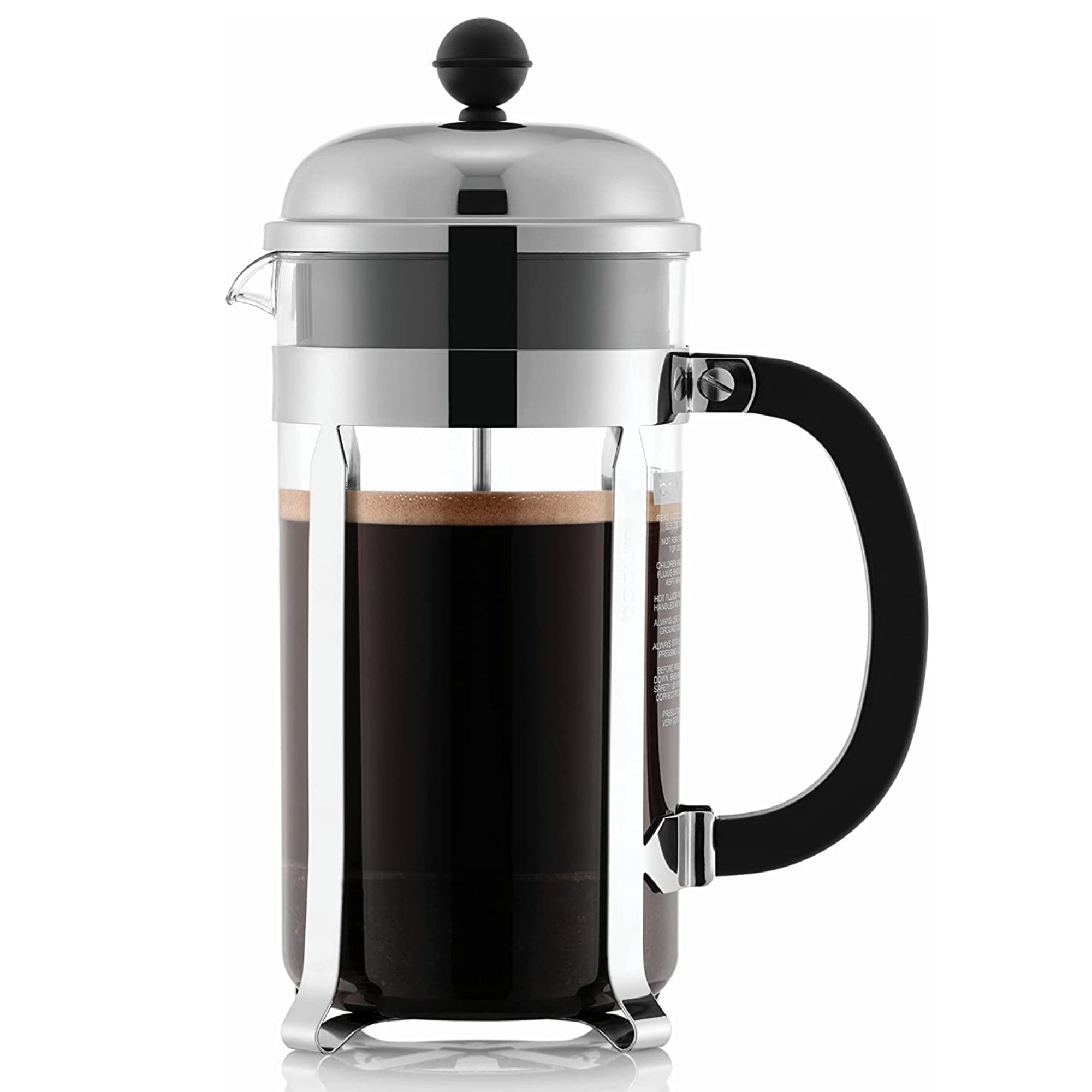
If you like the classic silhouette of European French presses, you won't do better than this. It's an iconic French press, but that hasn't led to an inflated price or lack of supply. It's brilliant.
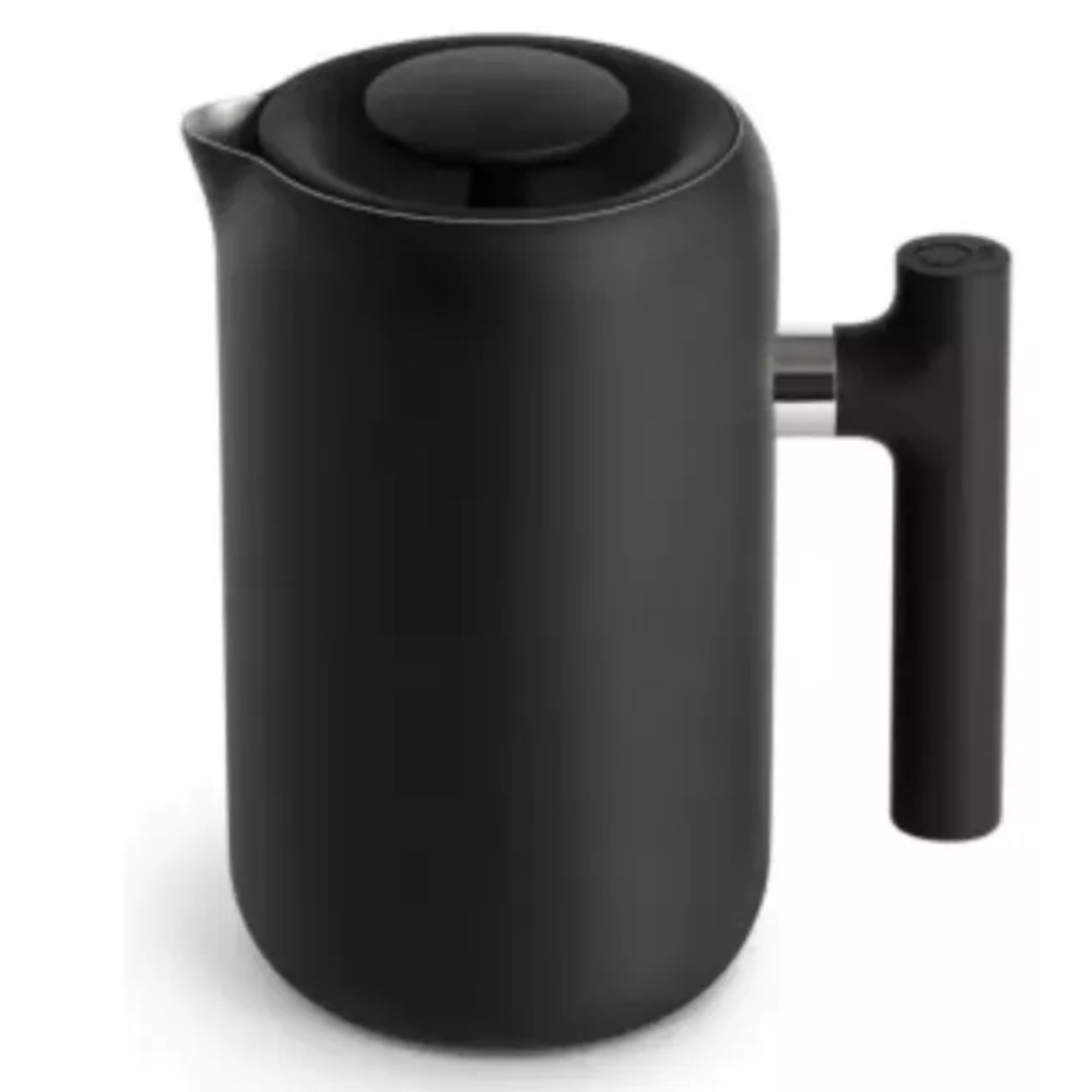
If you like the luxury experience, the Fellow is an incredible French press. It's double-walled, and has a filter that runs the whole way around the lid, meaning it makes effortlessly smooth coffee.
FAQs
Do I need to grind my own coffee?
The simple answer is no, as you can ask your local roaster to grind for you. Supermarkets tend to offer a coarse grind and espresso grind and they can suffice for at-home brewing methods but they aren’t ideal.
James Gray explains: 'Many domestic espresso machines have what is called a pressurized basket and that means they require a coarser espresso grind whereas the more premium machines that are more like the commercial machines you see in good coffee shops will require a finer grind.
'If you buy your own grinder it means you can grind specifically for your brewing method and this will make a big difference. You do have to accept you will have to invest in a good grinder, otherwise you may be better off asking your local roaster to grind for you.
'The reason is lower-cost blade grinders should be avoided as the grind consistency isn't as good and leads to a poor coffee.'
Why you need a grinder if you're buying whole beans
'Buying whole bean is always our recommendation but only if you are going to buy a good grinder,' says James Gray.
'You would be better with pre-ground if you don’t have the budget for this. The reason is commercial grinders used by roasters offer better grind size consistency, which is important for an evenly extracted, great-tasting coffee so, although you will lose out on freshness, it may be worth that trade-off.
'If you have the budget to buy a decent burr grinder then whole bean and a grinder is certainly the way to go. The benefit of whole bean is that if it is kept in the right conditions in an air-tight valved bag or container, it will remain fresh for longer.'
If you'd like some inspiration for which grinder to choose, we have a buying guide for the best coffee grinders on the market. The best by far is the Fellow Ode burr grinder (available at Amazon). You won't get a better domestic model.
Do you need a milk frother to make a latte?
'I would recommend using a manual milk frother for your milk,' says Barista & Co's James Gray. 'A tip is to froth your milk cold and then put it in a microwave to heat; most people heat first and then froth but the other way around works better.
'After doing this, you should have a body of fluffy hot milk with a foam on top. To make your latte-style coffee, slowly pour your milk into the coffee and then at the end pour or scoop the milk foam on the top - the foam should be around a finger's width.'
How do I choose the right coffee grounds for different brew types?
The right grind size is directly related to the brewing time. There are other variables such as water temperature and pressure but time is the main one to consider.
James Gray explains: 'If you are using a brewing method that has a very short brewing time then you will generally want a finer grind size, for this reason espresso brewing uses a fine grind size. At the other end of the spectrum cold brew can take many hours and that has a very coarse grind size. As a rule of thumb, follow the rules below for the right coffee grounds:
Espresso – fine grind.
Filter/Pour Over – medium grind
Cafetiere – coarse grind
Cold Brew – very coarse grind
Another tip away from the grind comes down to the coffee itself.
James adds: 'Traditionally lower-grade coffee was roasted dark to hide the pour quality coffee with burnt and bitter notes. This was then offset with sugar and milk to bring sweetness and balance the drink.
'Try a lighter roast, good quality coffee as you will find more complex flavors without too much bitterness. Most people associate darker roast coffees with higher strength and although there is some element of truth in this, the reality is there is very little difference in strength between the two. We don’t roast too dark as we want the quality of the coffee to do the talking.'
You can see that knowing how to make coffee at home is really a matter of mastering the basics. Once you can choose the right beans and coffee equipment for the kind of coffee you like, you're set for making a barista-worthy brew every time.
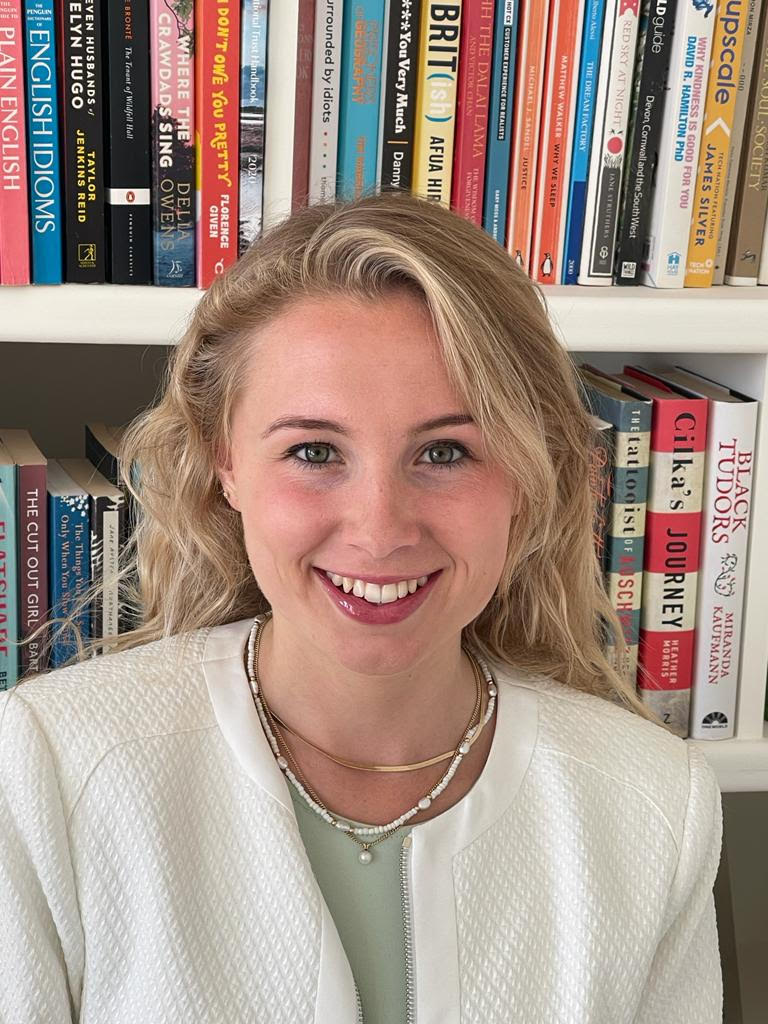
Laura is our eCommerce editor. As a fully qualified barista, she's our expert in all things coffee and has tested over thirty of the best coffee makers on the market. She has also interviewed Q-Graders and world-leading experts in the coffee industry, so has an intimate knowledge of all things coffee. Before joining Homes & Gardens, she studied English at Oxford University. Whilst studying, she trained as a master perfumer and worked in the luxury fragrance industry for five years. Her collection of home fragrance is extensive and she's met and interviewed five of the world's finest perfumers (also known as 'noses'). As a result of this expansive fragrance knowledge, she always puts quality and style over quantity and fads. Laura looks for products which have been designed simply and with thoughtful finishes.
